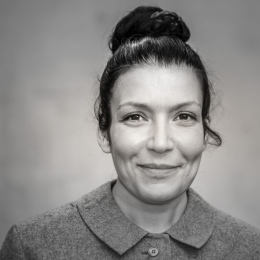
Platform for Smart People: Understanding Inclusion Challenges to Design and Develop an Independent Living Platform in a smart Society for and with people with autism
Objective
People with autism are a large group at Day Activity Centers, and autism is one the most common neurodevelopment diagnoses that can imply severe disability for many people. The Platform for Smart People (PSP): Understanding Inclusion Challenges to Design and Develop an Independent Living Platform in a Smart Society for and with people with autism project is about creating a platform to make people with autism more independent of help from others in everyday life situations. The focus is on real-life challenges and opportunities at Day Activity Centers.
This will be achieved by co-designing and developing a Platform for Smart People. The platform will include an accessible Augmented Reality app with a Machine Learning framework and Civic Intelligence to advance the current state-of-the-art digitalisation and smart society for people with autism. An iterative co-design process will ensure that requirements for people with autism are met in the platform.
Background
People on the autism spectrum present a particular challenge. Tasks that neurotypical people take for granted to do easily (e.g. planning a day) may be out of the abilities of people with autism who still must live independently and work. To overcome these barriers, there are potential opportunities based on current research and development.
Augmented Reality means that the actual world is augmented with digital objects (graphics, audio, haptics) by detecting actual-world objects, tracking positions, sensing distance and depth, and integrating light settings. Previous research shows the feasibility of using Augmented Reality to help autistic people with social communication skills and independent living tasks.
Machine Learning is a tool that can automate tasks to make the augmented world more accessible, such as identifying real-world objects. However, Machine Learning has a so-called cold-start problem where big data sets are needed to make it useful. To overcome this, a Civic Intelligence component is needed, where staff at Day Activity Centers can contribute with individual adaptations that they know work for each person. The results can have a wide outreach by combining the advances above and integrating them with the Global Public Inclusive Infrastructure research efforts.
Crossdisciplinary collaboration
The partnership is composed of a multidisciplinary team to respond to the corresponding cross-disciplinary responses required of the project. The researchers in the team represent the Department of Computer and Systems Sciences at Stockholm University (SU), the Department of Special Education at SU, and KTH. In addition, several Day Activity Centers in Stockholm are involved. The project Advisory Board consists of representatives from Autism och Aspergerförbundet, Rinkeby-Kista Day Activity Center, IBM, Trace R&D Center and Raising the Floor.
Watch the recorded presentation at the Digitalize in Stockholm 2023 event:
Contacts

Mirjam Palosaari Eladhari
Associate Professor at the Department of Computer and System Sciences at Stockholm University, PI of research project Platform for Smart People (PSP): Understanding Inclusion Challenges to Design and Develop an Independent Living Platform in a smart Society for and with people with autism, Digital Futures Faculty
+46 8 16 11 37mirjam@dsv.su.se

Rahim Rahmani
Professor in Computer in Computer Science Depart. of Computer & Systems Sciences (DSV) at Stockholm University, Working group Digitalised Industry, Co-PI of research project Platform for Smart People (PSP): Understanding Inclusion Challenges to Design and Develop an Independent Living Platform in a smart Society for and with people with autism, Digital Futures Faculty
+46 8 674 74 94rahim@dsv.su.se

Mario Romero
Associate Professor, Division of Computational Science and Technology at KTH EECS School, Former Member of the Executive Committee, Former Associate Director for Seminars & Workshops, Co-PI: Platform for Smart People (PSP): Understanding Inclusion Challenges to Design and Develop an Independent Living Platform in a smart Society for and with people with autism, Co-supervisor: SMART – Smart Predictive Maintenance for the Pharmaceutical Industry, Digital Futures Faculty
marior@kth.se
Thomas Westin
Senior Lecturer, Stockholm University, Co-PI of research project Platform for Smart People (PSP): Understanding Inclusion Challenges to Design and Develop an Independent Living Platform in a smart Society for and with people with autism
thomasw@dsv.su.se

